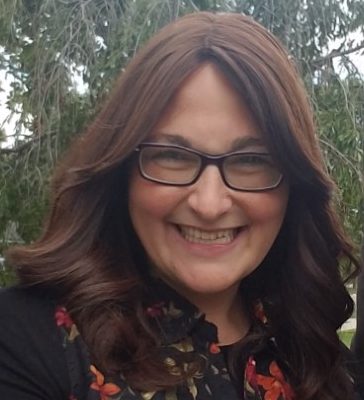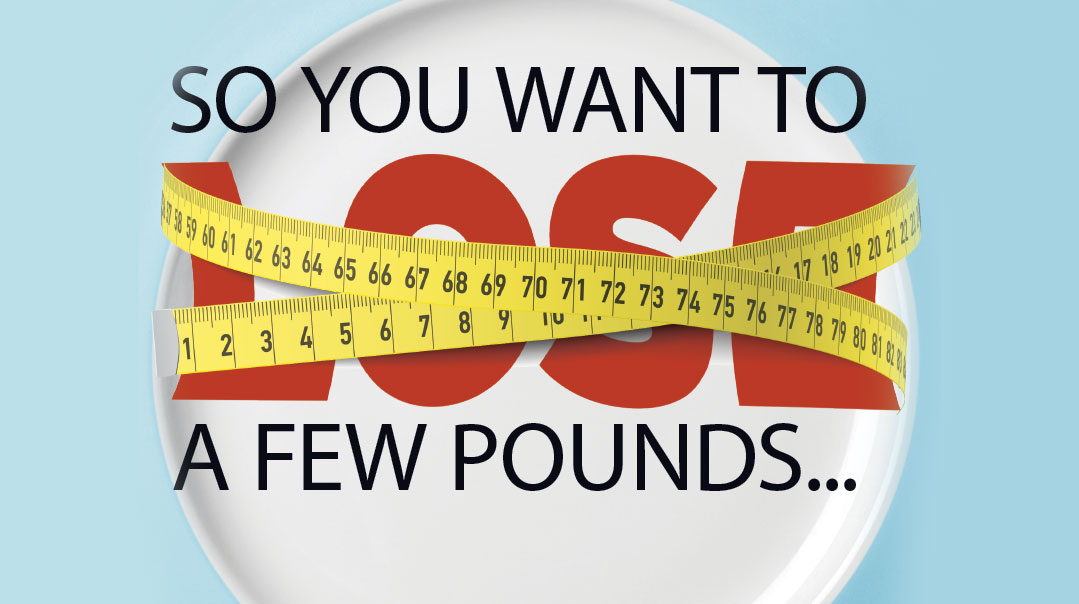So You Want to Lose a Few Pounds

Faced with kiddush, kugel, rugelach, and simchahs, how’s a frum Jew to stick to a diet? Five experts weigh in

Our Experts
Alanna Black of Staten Island, New York, works as a registered dietician at Silver Lakes Specialized Care Center, a nursing home and rehab center. She’s been a dietitian since 2010.
Mark Surdut is an accredited practicing dietitian from Melbourne, Australia. He’s been in the field for 25 years.
Yossi Muller of Lakewood, New Jersey, is a nutritionist. He founded Yossi Muller Nutrition Company in 2008.
Miryam Berry, a registered dietitian in Lawrence, New York, for four years, owns Berry Healthy Weight.
Moe Shlachter is the president of Houston Family Nutrition and a registered dietitian-nutritionist in Houston, Texas.
How does dieting affect men and women differently?
Miryam Berry: I often see couples who are dieting at the same time, and the women are always complaining, “It’s not fair, we’re eating the same thing, and my husband dropped ten pounds barely trying, and every pound is a struggle for me!”
Yossi Muller: Some issues in weight loss seem to be more gender-based. For example, women are more likely to say that the hardest time of the day is 5 p.m. Men usually say it’s 11 p.m.
Alanna Black: Men’s and women’s bodies are different. Men have more muscle and bone mass, so the calculations for everything are different, including caloric needs.
Mark Surdut: It has very little to do with gender. Things like health status and level of motivation play a much bigger role.
Moe Shlachter: There are some considerations, but it’s not all because of gender. Both men and women need to find that food is their friend.
How does Shabbos affect a person’s diet?
Moe Shlachter: Shabbos represents the cultural and emotional side of food, which is a very powerful influence. Whether we eat for emotions or for function, the food is still going to get processed by our bodies the same way. Our bodies don’t take a rest on the seventh day!
Yossi Muller: The topic of dieting on Shabbos has led to many funny questions. I’ve been asked: Are carrot muffins considered a “free” vegetable? When you say I can have a bowl of cholent, does that include kugel and kishke? Why did I gain weight when all I ate on Shabbos was salad… potato salad and macaroni salad! Then there was the couple who cut a large challah in half, split it, and then complained that I hadn’t specified the size of the recommended “one slice”! Then again, there are people who do it right, for instance, by getting their fix of a single cookie on Shabbos. Shabbos is not really the diet-killer it seems to be.
Alanna Black: 
There are many variables on Shabbat, including the halachah of not measuring food and sitting down twice a day for a bread meal. Also, frum families are usually large, so it’s harder to keep track of what the dieter is eating. This comes up a lot in counseling. I always say, when you’re passing food around the table, don’t take a taste of this and a spoonful of that — it adds up to much more than you think.
Miryam Berry: Yes, Shabbos can make a big difference. Dieting comes down to calories in versus calories out with the goal of creating a calorie deficit. When someone eats more than they need on Shabbos, it will likely affect their weight loss goals.
Mark Surdut: Everyone jokes that on Shabbos, calories don’t count, but it’s simply not true. Worse yet, Shabbos eating starts on Erev Shabbos, when I’m sampling my wife’s cooking, and lasts until we finish eating leftovers on Sunday night. I have three simple and effective Shabbos tips: First, choose healthy drinks. Second, when it comes to challah, work out what you require versus what you desire. Third, have only a single portion of every course.
Can someone diet without the help of his or her family?
Alanna Black: It would be extremely difficult. When I was a kid, whatever diet my dad was trying, whether it was Atkins or Weight Watchers, our whole family suffered along with him. It can be very hard to resist cookies when everyone else in your family is chowing down. And FYI, I don’t support diets — they are unsustainable. I support lifestyle changes.
Mark Surdut: Yes, but it definitely helps to have support. I’ve had clients without family support who were particularly motivated— what we call “in the zone” — because they were trying to prevent the onset of diabetes or they were starting to date. But it definitely helps when the family’s on board.
Yossi Muller: The family has the biggest impact on what foods we’ll eat. One client promised his daughter-in-law a new sheitel if he lost weight over Yom Tov — and he lost three pounds! Family has a huge impact.
Moe Shlachter: If someone really wants to change, they usually need their environment to change along with them. One client was particularly nervous because she had absolutely no cooking experience and had always served takeout or convenience food. But after just one cooking lesson, she realized she could cook. Now her whole family is wowed by her fresh food, and that has motivated her to continue cooking healthy food.
Miryam Berry: I don’t think family is necessarily important, but the presence of a support team is. That could be anyone who’s going to help celebrate your wins, help you get back on the bandwagon after a slipup, and will be genuinely happy for your dieting success.
Can you tell when a client is not going to be successful? What are the signs?
Mark Surdut: I used to think I could, but now I know I can’t. I’ve had clients who I thought for sure weren’t so into it, and then they came in a few weeks later with their weight down, glucose levels down, exercising, feeling great. Other times, I’ll have a wonderful rapport with a client, they like my approach, the planets are aligning, I’m positive they’ll be successful and then they come in with all kinds of tzuris in their lives and everything falls to pieces.
Miryam Berry: Everyone comes in with a different story — some people are motivated to change, some are frustrated and burned out. I give everyone a chance and help them work through whatever’s holding them back from being successful.
Yossi Muller: You can tell from the way they talk, their level of commitment, and how badly they want it. And sometimes what you think you’re seeing is not someone’s reality. Once I was working with a client who’d been really successful and lost lots of weight. Two weeks later, I ran into him at the grocery store and was shocked that he’d gained it all back. But he showed up to his appointment that week, looking thin again. Turned out I’d seen his twin brother!
Alanna Black: I used to work at the WIC [federal assistance] office and I could tell by my clients’ body language if they were interested. At the other end of the spectrum were the overachievers, the people who want to change all their life habits in one day. It is much more sustainable when a person chooses to tackle one thing at a time.
Moe Shlachter: I take people at face value and don’t jump to conclusions. In my experience, people who succeed are those who feel at peace and have the ability to work through setbacks. It also helps to have an open mind and be self-accepting.
What are the “magic foods” for weight loss?
Alanna Black: There aren’t any, and if anyone tells you there are, run far away!
Miryam Berry: Definitely not celery juice or apple cider vinegar. It’s not “magic,” but nutrient-dense, high-volume foods that fill you up and keep you feeling full — such as salads and soups with lots of vegetables — that are perfect for weight loss.
Mark Surdut: I can’t tell you how many times I had a sneaking suspicion I was being followed while at the grocery store… and it turned out I wasn’t imagining things! A surprising number of people want to dissect the local dietitian’s shopping cart. They’re always disappointed to see my cart stacked only with ordinary foods. There are no magic foods!
How important is both controlling the mind and emotions in the dieting process?
Moe Shlachter: It’s paramount. I’d even say controlling these is as important as the food itself. In my practice, that’s where a lot of our focus is.
Mark Surdut: Food is so emotionally linked; I can’t tell you the number of times I’ve discussed nutritional requirements with my clients and then they suddenly start telling me about their families and their relationship challenges.
Alanna Black: Eating can be very emotional, especially in Judaism. We eat at simchahs when we’re happy, we eat at shivahs when we’re sad. We eat to reward ourselves and to comfort ourselves. It’s very difficult to separate emotions from eating. Once a person can do that, and internalize that food is energy, not love and not pleasure, it can be a key to unlocking weight loss.
Yossi Muller: During weight loss, it’s about half physical — going through the motions, planning meals — and half emotional — staying focused, having the right mental responses to losing or gaining. During maintenance, the mind is almost all of it.
Miryam Berry: Many times I’ve had clients who share that as soon as they get their eating under control, they see a shift — they have more patience with their kids, they suddenly have the strength to tackle hard issues at home, try bold moves at work… it’s unbelievable. A person’s state of mind affects their food choices, and then the food choices affect the state of mind.
What’s the best excuse you’ve ever heard for not following a diet plan?
Yossi Muller: One client told me that since he got me more clients, he should get to eat more food.
Alanna Black: I’ve seen and heard many crazy scenarios. One man who had a leg amputated, lost a few fingers, had renal disease, diabetes, and was on dialysis, sadly, at the end of his life, used his last ounce of energy to go to McDonald’s. It blew my mind, but bad habits take tremendous willpower to break.
What’s your number-one weigh- loss tip?
Miryam Berry: Start with small sustainable changes. Small changes will lead to big results.
Alanna Black: Skip beverages with calories and drink more water.
Moe Shlachter: Approach every meal as an opportunity to get nutrients even if that meal contains food that is not really that healthy.
Yossi Muller: Follow a normal and healthy food plan, one you can do for life.
Mark Surdut: Can I have three? 1) moderate carbs, 2) eat vegetables, and 3) hydrate with water and feed your body with food. Don’t get the two mixed up.
Which fad diet makes the most sense? And are they sustainable?
Yossi Muller: One client suggested that the Atkins diet should work because “seven skinny cows ate seven fat cows and stayed skinny!” Joking aside, the answer is none. Even when diets work, people wind up with medical issues down the road as a result.
Mark Surdut: A fad diet is something that isn’t based on science. A popular current diet approach that has some science and is successful, I’d say, is intermittent fasting. Basically, the day or week is split into eating periods and fasting periods.
Alanna Black: I don’t support fad diets but I do recommend the Diabetic Exchange Diet for people who want structure. It’s basically a list of recommended serving sizes of recommended foods. It was actually made for diabetics to maintain their blood sugar level, but it’s beneficial for everyone.
Moe Shlachter: The Mediterranean diet is very well researched and has a good approach to diet planning. It’s a diet that’s rich in plants, grains, nuts, and also includes protein from other sources.
Miryam Berry: All those fad diets are based on some kind of research or studies. At the end of the day, people have to find what works for them. Dieting is definitely not a one-size-fits-all program.
Can you tell me about your most memorable clients?
Yossi Muller: There are many. The client who slept through his first meeting because he thought he just had to show up; he didn’t realize he’d have to pay attention, too! The guy who misunderstood the concept of “free calories” and thought my display of expensive “free calorie” vegetable spaghetti was on the house and walked off with it. As for weight loss, there are many people I can think of who had terrible food habits, would inhale their food, eat dozens of doughnuts at 1a.m. and worked hard to lose over 100 pounds, work out regularly, and eat healthily. It’s inspiring.
Moe Shlachter: There’s a powerful experience that’s come up for a few clients, but one in particular expressed it very clearly. When she first came to see me, her weight was a concern, but more so was her feeling of being out of control around food. By the time she reached her health goals, she said she’d transformed from feeling like food was controlling her to a place where she felt confident and at ease in any food situation.
Alanna Black: One of my clients was over 300 pounds, diabetic, blind in one eye, had missing toes, was on dialysis, and could barely move. I worked hard to build a great relationship with him even though he was known to be noncompliant, and in six months he lost over 50 pounds— just from cutting out soda!
Mark Surdut: A gentleman came to see me a few years ago. I didn’t think he’d be successful because his profession involved a lot of driving. He turned up the following year and I didn’t recognize him: He’d lost around 90 pounds. It was such a shock! I still see him every so often, looking healthier and younger each time. He’s not overly strict, but he’s practical, consistent, and exercises regularly. It’s these kinds of successes that motivate me to continue what I’m doing. I motivate my clients and they, in turn, motivate me.
Miryam Berry: One couple comes to mind: They both lost over 100 pounds, but the really amazing part was how they completely transformed their lives. Once food wasn’t the main focus of their Shabbos and Yom Tov, they got to experience those special times in a completely new way. The meals became centered around family, meaningful conversation, and uplifting the day.
(Excerpted from Mishpacha, Issue 788)
Oops! We could not locate your form.












